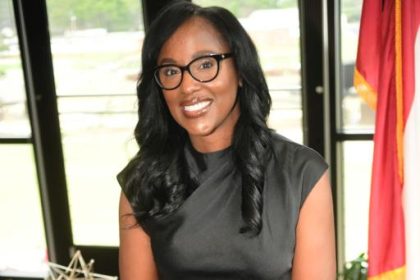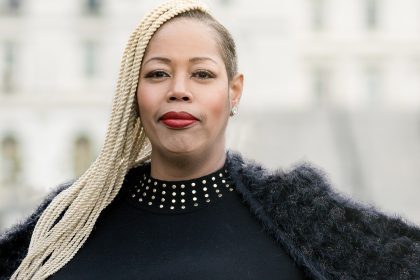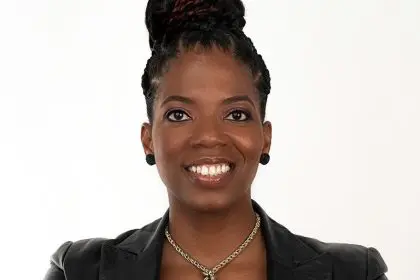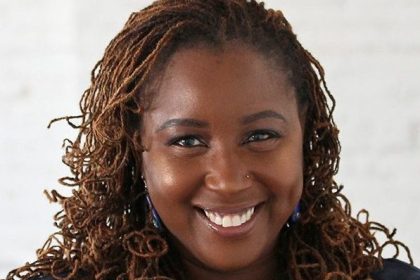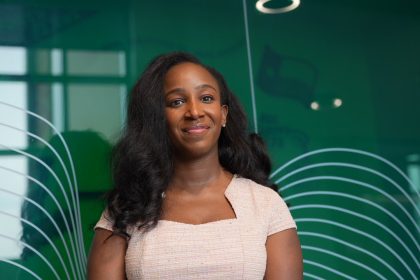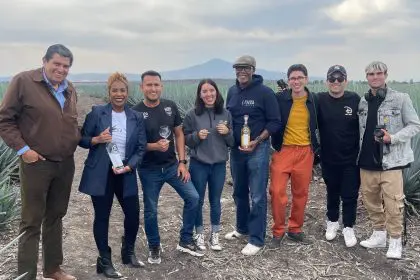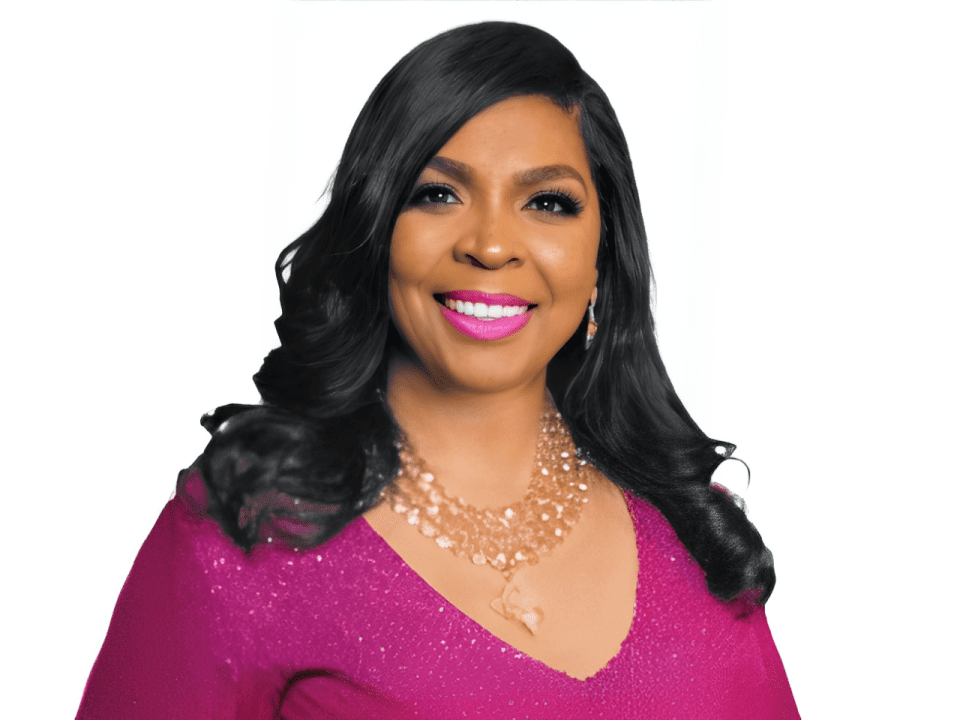
When Carrie J. Clark was installed as International Regional Director of Alpha Kappa Alpha Sorority, Incorporated® at the 70th Boule in Orlando in July 2022, she brought with her 35 years of sorority service and a vision that transcends borders. From her initiation into Xi Chapter at Eastern Michigan University in 1987 to her current role overseeing 19 chapters across 12 countries and 8 time zones, Clark has mastered the art of building unity across vast distances.
Her journey through AKA leadership reads like a masterclass in service: chapter president, vice president, historian, and parliamentarian at Lambda Pi Omega Chapter in Detroit; Great Lakes Regional Director from 2018-2022 during the challenging COVID years; and committee leadership spanning from local Centennial celebrations to international ethics and diversity initiatives.
As a Silver Star Life Member, she’s channeled that same dedication into her professional life as System Director of IT Operations at Henry Ford Health, where she oversees four departments including a Project Management Office with over 50 project managers.
Clark’s dual expertise in leadership and technology — backed by certifications as PMP, SCRUM Master, and ITIL — has proven invaluable as she navigates the complexities of leading what she calls “the smallest but most complex region” in the sorority. Whether she’s implementing IT governance systems that improve patient care, teaching as an adjunct professor since 1995, or creating innovative programs to unite 500 women across continents, Clark approaches each challenge with her signature blend of strategic thinking and servant leadership.
Her numerous accolades, including the Career Mastered National Women’s History Leadership in Action Award and Michigan Chronicle Woman of Excellence, reflect a career dedicated to opening doors for others while building lasting institutions.
What, from your perspective, do you feel is your superpower?
Well, let me say this. I think I have a lot of superpowers. I think we all do. When you get to a certain point in your life and in your career, you start to really hone in on the skills and the attributes that make you who you are. And so for me, I think about, of course, innovation. A lot of things that I’ve done in the sorority as well as in my profession has always been about, “How do you innovate? How do you create? How do you design? How do you execute with precision?” Innovation and creativity is truly one of my superpowers.
I think, also, having the ability to be able to relate to team members, chapter members, church members and being able to work with them in different spaces to achieve the ultimate goal is another superpower, because not everybody is able to relate and to be able to execute in a space where you’re working with highly educated people, or in some cases you’re just working with everyday people that’s just trying to get the job done.
But my other area of superpowers that I think is important is always to lead with purpose and to lead with grace. When you lead with purpose as one of your superpowers, and maybe one of the main aspects of what you offer as a leader, I think you always make sure you’re doing it with good intentions.
When you think about superpowers, you want to make sure you’re using your powers for good. And you want to make sure you’re leaving an imprint and an impact on individuals that would take those superpowers and say, “Those are the things that I want to incorporate into my lifestyle as a leader.”
I can go down a list of superpowers. But I think innovation, creativity, having the ability to collaborate with people, but most importantly leading with purpose and with grace. Those are the things that I feel that are my superpowers.
What does it mean to lead members across the globe, including the newly chartered chapter in London? How do you build unity across distance?
That is a tough question, because right now I’m responsible for a total of nineteen chapters. Now that we have Alpha Delta Alpha Omega chapter. But we are in 12 countries, eight time zones. I live in Michigan, where we’re on Eastern Standard time zone.
When you talk about building unity, one of the things that I try to do and serve in this capacity, which is an honor and is a profound responsibility to do, is first of all understand the uniqueness within each country, understand the cultural differences, understand the different beliefs, but making sure that I don’t compromise Alpha Kappa Alpha traditions and sisterhood and service, because at the end of the day, no matter where we live, no matter where we reside, we’re still one sisterhood, one sorority.
When I think about unity is, coming up once again, I’m going to use this word again, with creative and innovative concepts that still brings the region together, regardless of living in the UK or Asia, or Africa, or Canada, is talking about, “How do I bring over 500 women together to do the work of Alpha Kappa Alpha?” I am honored to serve in this capacity.
It’s probably been one of the biggest roles, even though within the sorority it’s the smallest region, but it is truly the most complex region in the sisterhood. I try to tell people all the time, “Do not underestimate the international region based on size,” because we have brilliant women serving in the international region.
We are doing great work to meet our international President and CEO Danette Anthony-Reid, her mission in executing programs that not only accommodate the women, the families in the US, but how do we transcend those opportunities globally? And so when I think about unity, it’s really about listening and understanding and rolling up your sleeves to say, “Okay, what is it that you’re doing in South Africa? All right. And what is it that you’re doing in Dubai?” and making sure that we’re really fulfilling the mission of our founders and the vision of our founders.
What has sustained your commitment to the sisterhood for nearly four decades?
My commitment to the sorority is based on several factors. First of all, let me just start here with my love for the sorority. My love for the organization is unquestionable, because I have been committed to Alpha Kappa Alpha for 37 years, and so anytime that you are committed to anything for 37 years, it is because you love it. It is my passion. It’s what I do that I get joy and fulfillment from.
The other areas that have sustained me and being committed is because, first of all, I believe in our mission. Our mission is about service. It’s about sisterhood, it’s about scholarships, it’s about giving back to the communities. And that is what we have been doing, and that is the future of where the sorority is going to continue to go in future administrations. When I think about why I am still committed, it’s because I love it.
It’s because I believe in the mission. And it’s because I have built great relationships over the years that are no longer just a sisterhood relationship. These are relationships that are lifelong relationships.
I’m committed. My husband, my family, they know where I stand with Alpha Kappa Alpha. They know that my heart is in it, and it’s in it for the right reasons. When you think about being committed to something that is bigger than you, and you’re talking about investing in something that is bigger than you, you do it because it is the right thing to do. And it is the right thing to do that’s going to make a global impact in the world. You always want to be something that is bigger than you. For me, it’s being part of the organization.
What’s your approach or leadership philosophy when it comes to different organizations?
Well, let me say this. In anything that I do, I always walk into it with the mindset of, “How do I make it better? How do I open up doors for those that are coming behind me? How do I leave a legacy that will be memorable, based on the work that was done?” Anything that I do, whether it’s in my professional life, my spiritual life, my sorority life, or any other civic organization that I may be involved with, I give it my best. When I give it my best, I work with the spirit of collaboration. I work with the spirit of excellence.
I work with the spirit of making sure that when we are done, the work that we have put in will be a long-lasting memory of excellence. I think because I do give my all. If you put 100% on the table, I’m going to put 200% on the table. And because that’s how I’m wired in anything and everything I’ve done since day one for me, it has shaped me because it has branded me.
When I’m involved along with other team members or committee members or individuals that are involved with that same mission, the outcome is going to always be giving it 200% and making sure that whatever we do is going to be a long-lasting impact, not only to the community, but for the organization that we’re serving.
The way that it’s shaped and has developed me has grown me. It has truly contributed to the leadership qualities that I possess today as a leader, no matter where I serve. Serving as a systems director for Henry Ford, or serving as an international regional director. I am the person I am because of the commitment and the work that I put in, and because of the ability to listen and learn and grow.
Every time I walk away from an effort, an initiative, a project, no matter what it is, I am a better person, because I have learned something from others that I’ve partnered with. We have challenged the norm, and making sure that we’re thinking outside the boxes to deliver something that will be worthwhile for those that are attending, whether it’s the community or the organization, whether it’s a conference, whether it’s a project, whether it’s a training session.
For me, I am who I am because of the development that has been poured into me by way of these efforts. I don’t think you’re ever too old or too seasoned to grow and learn. What I do is I walk away and say, “Okay, what do I keep from that experience? And what do I tweak and change from that experience?” That’s how I continue to improve who I am as a leader.
Can you describe more about your work at Henry Ford Health and the scope of your leadership?
I would love to. First of all, I’ve been in IT for over 30 years, coming out of undergrad. I’m not going to say the year, but in the eighties. Let me just start there. But I have been in leadership, probably the majority of my tenure and working at various companies. And one of the things that I have perfected and have become part of my expertise in leading and managing within IT is all around process re-engineering.
It’s all around governance, operations, efficiencies. Right now, I’m assistant director. I’ve been with Henry Ford for 12 years. I love Henry Ford. It’s a renowned system within the Michigan area, doing great things not only to improve patient quality, but also the community that we serve, and that we live in within the Michigan area. I am responsible for four teams, and those four teams are all under the umbrella of operations, governance. My passion and my expertise, and where I really thrive is within project management.
Within project management, I have a plethora of project managers from constructions to IT, to applications to security, and so my team is easily over forty to fifty PMs that’s reporting to me, serving in different roles and capacities. That is my passion, however, but I am responsible for other areas within IT.
The main thrust that I am responsible for doing is making sure that any programs, any initiatives, are strategically aligned to the health system overarching goals and strategy, but also making sure that whatever we do, we are implementing programs and projects that are going to improve quality, patient care.
Because a lot of times when you think about health care, you think about the clinical side. But you don’t think about the IT side of. When you go into your local health facility, think about the construction, think about the technology, think about the tools. Those are the things that I am impacting by way of projects and programs. For me, I enjoy working for a health system because it’s a caring, nurturing environment.
It correlates with my spirit as a leader to always want to give back within the community, but also help those that are in need. When I think about what I’ve contributed, Henry Ford, I’ve built a PMO office, basically from ground up. We’ve implemented processes and we have re-engineered processes that have integrated with other teams within the IT department. We are making a difference at Henry Ford in the IT area, and I am glad to be a part of that working within that respective area.
You are also an adjunct professor. Can you talk about that work and how it relates to your leadership?
Let me say this. I love teaching, I love it. When I was an undergrad, I contemplated going into teaching, but at that time a wise woman, who was my grandmother at that time, said, “No, go into something else, explore something else, challenge yourself in another area.” And so hence I decided to go into IT, and so for me to continue to get that satisfaction and that fulfillment of giving back and investing in others, and teaching and pouring into others, I decided to become an adjunct faculty.
I teach here in Michigan, at local universities, and I teach in the areas of project management, quality management, and IT. For me to walk into a classroom and just give of yourself unconditionally to help those that have a desire to learn that maybe one day that you have poured into, and you can see them go on to bigger and greater things. It’s probably one of the most satisfying rewards that anyone can ever, ever experience.
I’ve been teaching since 1995, and you get to network in a different way. I still have relationships with individuals that I taught years ago, because they’re still reaching out to say, “What about this? How do you do this? What are your thoughts on this?” I’m still able to help contribute to their futures. Teaching is extremely rewarding because you’re giving of yourself in ways that you never could imagine.
Also, you’re seeing the return on it. When you see these individuals, they graduate in their professions, in their discipline, and then they go on to become project managers, IT gurus, you can sit back and say, “I had a little part to do with that.” Not claiming the success, but feeding into the success. I continue to teach to this very day, because I enjoy it so much. It’s an area that I can just walk in and just let down all the guards, and just be myself, and give it back to those that have a desire to want to learn and to better themselves. I enjoy it earnestly.
Who has poured into you and how has that informed the way that you lead?
I’ve been so fortunate to have so many women in my life! Aunties, grandmothers, of course my mother, cousins, mentors in the church environment, the sorority environment, in the work environment, that I am a little bit of all of them, and I represent all of them. When I think about the women that have been impactful in my life, they continue to inspire me still to this day, whether they are physically here or spiritually here.
I look back at them, pouring into me with wisdom and with great advice. I look back, and I think about the advice they’ve given me on how to continue to lead.
When I talk to them, they pour into me and say, “Hey, you know what? You did a great job on this,” but then they also pour into me and say, “Hey,” they give me constructive feedback, and that’s the feedback you learn from the most, from my perspective. It’s not the things that you do well, because you’ll continue to do those things. It’s the things that someone who loves you unconditionally, and that they have your best interests at heart, is going to develop you and pour into you and say, “Now, you could have handled that a little differently, or think about this the next time.”
I have been truly blessed to have so many positive women in my life that loves me unconditionally, that want the best for me, that when I think about my future and my aspirations, these are women that are behind me and on the side of me, saying, “You can do it,” because sometimes you start to say, “All right, I have the faith. I believe I have the skills. I have the qualifications,” whether it’s in your work life, your professional life.
But at the same time you need those women who you truly respect, who you adore, to say, “No, no, you can do this. Keep on doing. Keep on moving, and keep pursuing your dreams because you have what it takes to do it.” I think about a lot of women, and if I was to give you a list, we’ll be here all day with me naming women. But I’ve been very blessed in that area to have women to love me unconditionally, as I said.
How do you stay grounded and motivated as you receive more recognition?
My faith keeps me grounded, my family keeps me grounded, but my faith does because you always want to serve with humility. You want to serve. You want to be a humble servant at the end of the day. You want to attract to people that can see something in you that says, “I want to mimic what she’s doing, or I want to do things like her.” I think when you allow arrogance to come into play, I think it distracts from the mission, and so for me, it’s important to always stay humble.
It’s important to always stay relatable, approachable. It’s important to make sure that I am leading by example. When I see things that I don’t like in a leader, arrogance, or the ability to not be relatable to the everyday woman or person, I always say to myself, “That is not the leader I’m going to become or continue to grow into,” because at the end of the day, people are looking for leaders that not only can execute, make a difference, be impactful, but can also lead the charge with you in mind.
And if you’re thinking of yourself and the seat, you’re not going to ever be able to lead with the people in mind. For me, it’s not about, even though I’m very grateful for the accolades. I’m very humbled for the recognition, because it does feel good to be recognized for the good work you’re doing.
But at the end of the day, it’s not about that. It’s about serving, it’s about giving back and, as I said before, it’s about opening up the door, so others can come through, because your legacy is something that should be a part of that recognition that people can respect, and so to get respected, you have to give respect. My goal is to always be that humble and servant leader, because I think, when you exhibit those qualities, other blessings come your way.
What advice would you give to women trying to balance career, community work, and family?
Oh, my gosh! Well, let me say this first. I’m still learning. I’m still learning how to balance, because there’s no perfect formula. I think at the end of the day, because we’re playing so many roles in life. Work life, mother life, organization life, community life, whatever it may be. But I guarantee you’re playing more than one role in life. At the end of the day, I think the advice that I will give is that you have to give yourself grace, and you have to take time for yourself, and that’s not being selfish.
It’s just allowing you to recharge, re-energize, and you know what? You have to allow yourself to say no, sometimes. Saying no, as they say, is a complete sentence, and so I don’t think there’s ever the perfect balance. I think you have to figure out sometimes, day by day, hour by hour, what’s important to you at that time, so you can focus and live in the moment to give it your all.
When you’re done with that, then you pivot and he’s “Okay. I’m done with AKA. I’m going to pivot now, to Jack and Jill. I’m going to pivot to the Links. I’m going to pivot to my church,” whatever it is that you need to pivot to. Sometimes you need to part mentalize, so you can be in the moment to serve with your all. But if I had the secret recipe to work-life balance, I would be rich. I wouldn’t even be talking to you right now, listen. I would be rich right now, because everybody is trying to figure out how to balance.
But at the end of the day, I say, you have to give yourself grace. You have to say and be able to say no, sometimes, when it’s needed, you have to give yourself the ability to just step away from it all. And, as I stated before, to re-energize and recharge, and for me it’s about spending quality time with my family. If I can get my family out for dinner. That brings me so much joy, because at the end of the day you have to focus on what’s important to you, and you have to prioritize what’s important in your life.
The secret advice is just living day by day and focus on what’s important at that time, and organizing as you continue throughout your journey, how to ensure you’re focusing on things that does not consume you, but allows you to breathe. If that makes sense.
What are some other ways that you recharge and take care of yourself?
Some days I just unplug, I pause, and some days I need to pray. You just need to meditate. Meditation is good for the soul. And some days I just binge, you know, binge out on the couch and just watch TV and get caught up on some season of something just to distract my mind from it all. Because, even though you’re multitasking at the end of the day, you’re never disconnected. You gotta find those things that can disconnect you. And if that’s vacationing, if that’s shopping, if that’s watching TV, if that’s reading a book. For me, it’s shopping, is watching episodes, is spending time with my family.
Those are the things that allows me to disconnect. And one of the things that I have incorporated into my life, because I’m getting calls and text messages all day. I’m in meetings all day for work, and then all night for other organizations. If I’m getting text messages, I control that narrative, I’ll “Hey, let me call you back tomorrow” because I know at the end of the day, if I return every call, if I’m on every meeting, every Zoom, in every conversation, it would literally suck up 24 hours of my time, and so I have to control the narrative.
I have to control how I am spending my time. So, I’m more intentional now on how my time is being spent. Because there’s only one of me, and it’s 50 other things that I’m trying to accomplish. And I want to give it my all, and I don’t want my track record in, in meeting expectations or exceeding expectations to be flawed because I am missing the boat, or I’m now disconnected because I’m trying to do five things at one time. I’m very intentional.
I think by having project management skills and working in that industry for so long, it has helped me prioritize what I work on and how I should organize my life on a daily basis.
What do you want your leadership to be remembered for most?
As I have gotten older, that conversation around legacy has become more prevalent, right? Because you think back like, “Okay, what do I want to be remembered for? What is the impact I want to leave on this world? What is the impression I want to leave on this world?”
And so that is a conversation I’ve been having more frequently lately, because I am getting older. And I’m thinking about the seriousness of all this time and energy that I’m putting into all these different things. Is it worth it? Is it going to be something that others will be able to benefit from? When I think about my legacy, and of course, I led at a time in the sorority when I served as the 29th Great Lakes Regional Director in COVID.
All during that time I was thinking about what is the legacy going to be when members research back, fifty years from now, and they look back during COVID. And they talk about, “How did the organization survive? And how did we thrive? And what did we do?” For me, my philosophy was, I want to make sure that I am leaving a list of things for people to go back and say, “Well, you know that leader, Carrie J. Clark. She did all of these things. She galvanized, she motivated, she implemented innovative concepts to keep her region on one accord,” and that was important to me, because I kept thinking about the future.
And what would it play back when members go back and do research and say, “What did we do at that time?” When I think about it today? And I could sum it up in just some hopefully, some few words. I think about. I want to leave a legacy of excellence. I want to leave a legacy where people say she was a visionary. I want them to talk about my character, that I was a friendly, sisterly type, leader, approachable leader, and that anything and everything that I did and executed. I did it with the members in mind.
I did it with my job and my teams at work in mind. What’s going to be important to me is not so much all what I did, but how I made people feel. Because people will forget what you did, but they won’t forget how you made them feel. For me, you have the art and the science in life. The science is these. This is the process and procedures. This is the execution of what you’re doing, but the art is the personality is the intentional side. It’s the heart. It’s the stuff you cannot buy.
When members look back, when my team members at my job look back, I want them to say that I was a leader for all, and that I represented fairness. I am big on the art because I can do the science. The science is every day all day what we do, but how you made people feel. Did you open up the doors? Did you reach back? Did you help others? That’s what I want my legacy to be remembered for. I wanted to speak volumes about me as a person, as an individual, and I want it to be a legacy that people aspire to emulate.
So, when I think about the legacy is important to make sure that at the end of the day that is something that individuals will respect and will regard, and will talk about for generations to come.
Video interview with jessica CARE moore coming soon. Check back shortly to watch this exclusive conversation.

